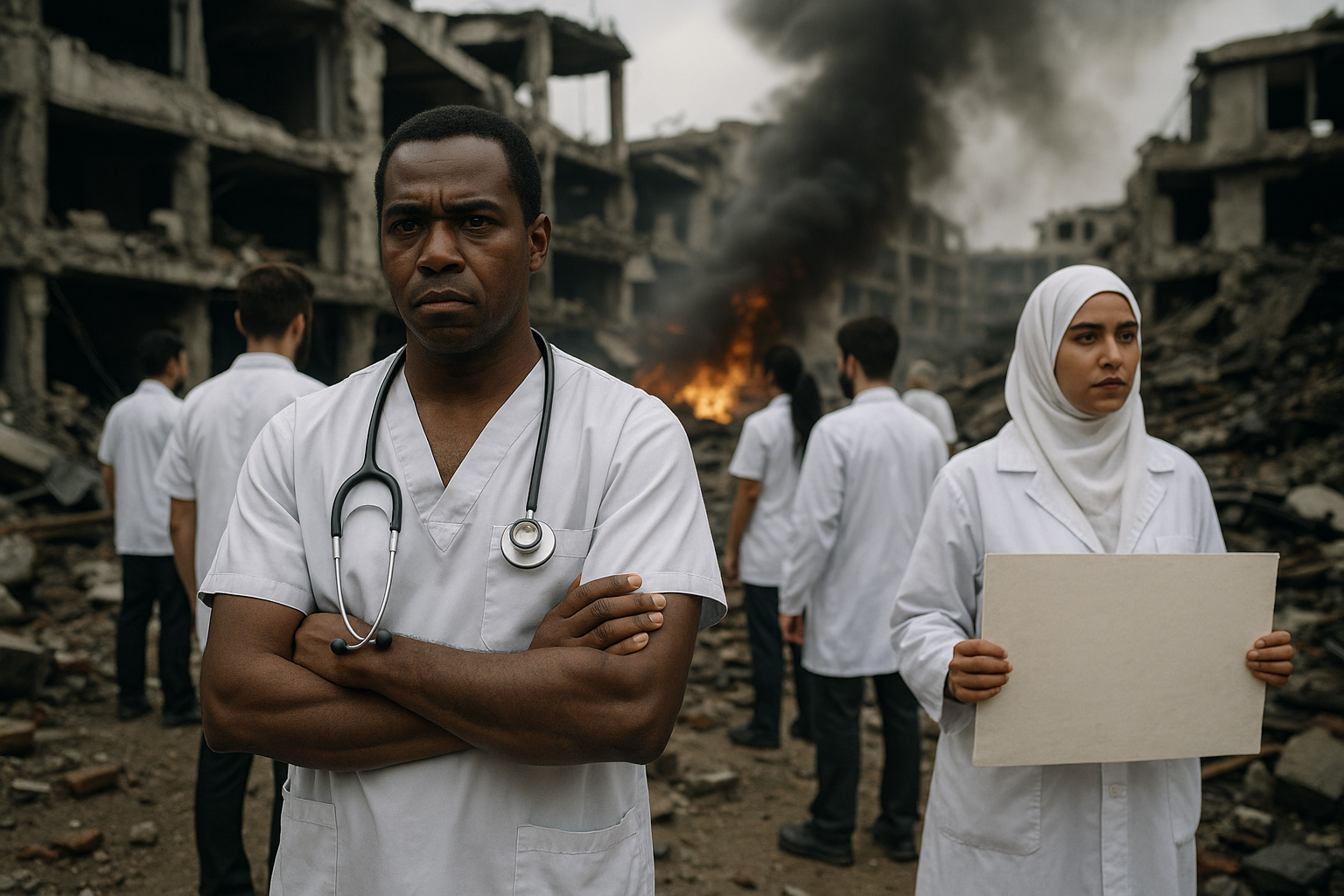World Bank Launches $201M Health Resilience Project in Mozambique
“Mozambique is already experiencing the health impacts of shocks and emergencies,” said Luc Lecuit, World Bank Acting Division Director in Mozambique.

- Country:
- United States
In a critical move to bolster Mozambique’s health security and emergency preparedness, the World Bank has approved a $201 million project to strengthen the country’s health system, especially in underserved and climate-vulnerable regions. Titled the Mozambique Health Emergency Preparedness, Response and Resilience Project, this five-year initiative aims to ensure continuity of essential health services even during natural disasters, disease outbreaks, and other crises.
Set to conclude in September 2030, the project is financed through a grant from the International Development Association (IDA) and forms part of a broader regional health security program covering Eastern and Southern Africa.
Urgent Need for Resilient Health Systems
Mozambique is no stranger to frequent and severe climate shocks—including cyclones, floods, and prolonged droughts—as well as recurrent disease outbreaks such as cholera, malaria, and COVID-19. These crises have repeatedly exposed weaknesses in the national health infrastructure, especially in remote and economically marginalized areas.
“Mozambique is already experiencing the health impacts of shocks and emergencies,” said Luc Lecuit, World Bank Acting Division Director in Mozambique. “This program supports the government’s efforts to strengthen core health service delivery by investing in preparedness and resilience.”
The goal is not only to react effectively to emergencies, but to build a more robust and equitable health system capable of proactive prevention and long-term service continuity.
Key Components: Building the Foundations of Resilient Healthcare
The project focuses on three core areas:
1. Strengthening the Health Workforce
The initiative will scale up recruitment, training, and retention of health workers in high-risk zones. Special emphasis will be placed on:
-
Deploying more doctors, nurses, and community health workers to remote districts
-
Offering incentives and career support to retain professionals
-
Creating continuous capacity-building programs to adapt to new threats
2. Enhancing Pharmaceutical Supply Chains
Through support to Mozambique’s health regulatory agency, the project aims to:
-
Streamline and digitize procurement systems
-
Improve transparency and price controls for medicines
-
Ensure emergency-ready stockpiles and faster delivery of health commodities
3. Strengthening Surveillance and Laboratory Capacity
To reduce response time during outbreaks, the project will improve:
-
Disease detection tools and data-sharing systems
-
Laboratory testing capabilities across multiple regions
-
Real-time coordination between national and local health authorities
A Climate-Adaptive Health Strategy
One of the most innovative elements of the project is its focus on climate-adaptive infrastructure. This includes:
-
Designing and retrofitting health facilities to withstand extreme weather
-
Establishing emergency preparedness plans tailored to local risks
-
Supporting Mozambique’s broader National Adaptation Plan (2023)
“By prioritizing practical investments in the foundational pillars of the health sector, the Government of Mozambique is driving greater efficiency across the system,” said João Pires, World Bank Senior Health Specialist and Task Team Leader.
Expanded Support for Community Health Access
In tandem with the new initiative, the World Bank is increasing financing for the ongoing District and Community Health Services Revitalization Project, with a $63.7 million top-up aimed at improving access to quality primary healthcare in 63 of Mozambique’s most vulnerable districts.
This additional funding package includes:
-
$8.7 million from IDA
-
$5 million from the Global Financing Facility (GFF)
-
$50 million from a multi-donor trust fund supported by Canada, the United Kingdom, and Ireland
The expanded project will:
-
Improve maternal, newborn, and child health services
-
Strengthen district-level health systems
-
Enhance the quality of care at community health posts and clinics
Alignment with National and Regional Strategies
Both the resilience project and the revitalization effort are fully aligned with:
-
Mozambique’s Health Sector Strategic Plan (PESS) 2025–2034
-
The ongoing PESS 2020–2024 framework
-
The country’s National Adaptation Plan (2023)
-
Regional initiatives to improve public health security in Africa
These projects also contribute to the goals of the Africa Centres for Disease Control and Prevention (Africa CDC) and regional networks promoting health systems integration and crisis preparedness.
Toward a Healthier and Safer Future
This sweeping investment in Mozambique’s health system demonstrates the growing recognition of climate and conflict as core health risks, especially in low-income settings. The World Bank’s support aims not just to contain health emergencies, but to build a resilient system that provides equitable, quality care under any circumstance.
With robust partnerships, local capacity development, and a focus on sustainability, Mozambique is taking decisive steps to protect its population, especially the most vulnerable, from the dual threats of health shocks and climate change.
- READ MORE ON:
- Mozambique health system
- World Bank grant
- health emergency preparedness
- climate resilience
- IDA financing
- disease surveillance
- pharmaceutical supply chain
- healthcare infrastructure
- primary healthcare access
- maternal and child health
- disaster risk reduction
- National Adaptation Plan
- Africa health security
- Eastern and Southern Africa
- FAO alignment










